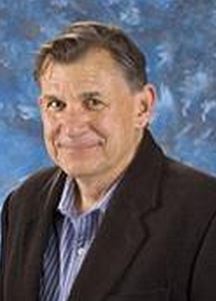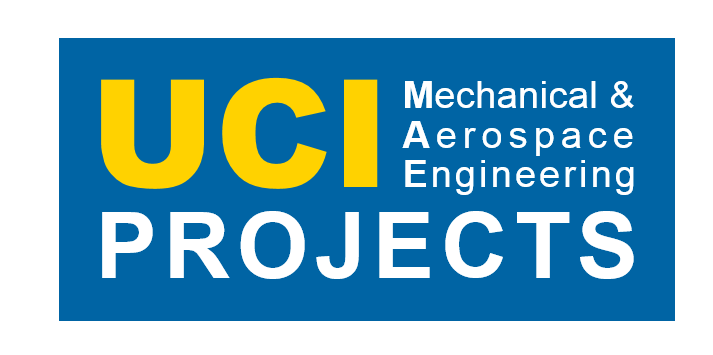Enter Tagline Here
The issue that satellites of low Earth-orbit face with thermal protection is the long amounts of time spent in non-operation due to extreme low or high temperatures experienced by the components of satellites. While the satellite is in orbit, there is a point that the radiator of the satellite is in direct sunlight. This causes the radiator’s thermal load to reach levels that are not suitable for the devices on board. Depending on what the satellite will do in orbit, it must be within a threshold of temperature so that it can remain in operation. Currently there are effective ways of implementing spacecraft thermal control through passive and active means; however, they both prove to be costly. The Spacecraft Thermal Management team plans to inexpensively minimize the time of non-operation by introducing a Variable Emissive Device (VED). By having the VED we can control how much radiation the radiator can absorb or reflect as the situation calls for, thus reducing the time of non-operation. For future applications the Spacecraft Thermal team hopes to implement the VED in deep space environment where thermal conditions are not known.
The first objective is to research and simulate the range of environmental conditions experienced by the satellite over a full calendar. Using this research, the second objective is to design, manufacture, and test a Variable Emissivity Radiator that will successfully control the temperature of an orbiting spacecraft.
This project will explore designs and methods of controlling the emissivity using a titanium dioxide (TiO2), tungsten oxide (WO3), and oxide mixture films. These films are based upon a design which has been successfully used by the UCI Chemical Engineering Department to build a solar cell. The solar cell operates by converting incoming radiation into electrical energy for storage or use. The spacecraft radiator will reverse the application by using a controlled voltage to achieve the desired emissivity and rejection of heat through radiation.
First, Eclipse Energy Systems in St. Petersburg, FL and Ashwin-Ushas Corporation in Marlboro, NJ obtained patents and successfully fabricated variable emissivity devices (VEDs). Eclipse Energy System Inc. tested samples of their Electrochromic Device (ECD) aboard the MidSTAR-1 satellite in March 2007. The results were favorable. Second, in May 2011, the Air Force Research Laboratory (AFRL) and Eclipse Energy Systems tested VEDs on board STS -134 (last mission of Space Shuttle Endeavor). The results were disappointing with the VEDs showing little or no change is emissivity. Data presented by the AFRL at Aerospace Corporation in March 2012 indicate that only one pre-launch vacuum test was performed and did not predict the humidity and contamination possible through the entire spacecraft travel from Earth to orbit. The UCI Spacecraft Thermal Management Systems project will not be using these materials that have been previously tested because the cost is approximately $100/cm^2; a prototype for testing would cost upwards of $10,000. Clearly, there is room to optimize designs for VEDs, so this project will explore much less expensive methods of controlling the emissivity of such devices.
# | Name | Email Address | Position | LinkedIn Address |
|---|---|---|---|---|
| 1 | Pedro Salcedo | salcedop@uci.edu | Team Lead | |
| 2 | Daniel Lapp | dlapp@uci.edu | Team Lead | |
| 3 | Victor Hugo Cabanas | vcabanas@uci.edu | Safety Officer | |
| 4 | Thomas Sullivan | tsulliva@uci.edu | Document Manager | |
| 5 | William Berrios | wberrios86@gmail.com | Purchasing Manager | |
| 6 | Christian Rodriguez | Team Member | ||
| 7 | Waleed Dahbour | Team Member | ||
| 8 | Joseph Rivera | Team Member | ||
| 9 | Edward No | Team Member |

Name: Pedro Salcedo
Email: salcedop@uci.edu
Team Lead

Victor Hugo Cabañas
Email: vcabanas@uci.edu
Safety Manager

Name: Keegan Sullivan
Email: tsulliva@uci.edu
Document Manager

Name: William Berrios
Email: wberrios86@gmail.com
Purchasing Manager
Initial Project Information
Project ID#
MAE0077
Course Code
19264
Project Type
Rsearch
Field of Interest
tbd
Description
The UCI Spacecraft Thermal Management Team is designing a Variable Emissivity Radiator utilizing an electrochromically controlled film to regulate the temperature of a 2-unit CubeSat in polar low earth orbit.
Maximum Number of Students
20
Requirements
contact advisor
Additional Information
none
Contact Method
email advisor

John LaRue
Professor, Advisor
jclarue@uci.edu
http://gram.eng.uci.edu/~maeadmin/Faculty/JCLaRue/






